The ancient language of the Azerbaijani people
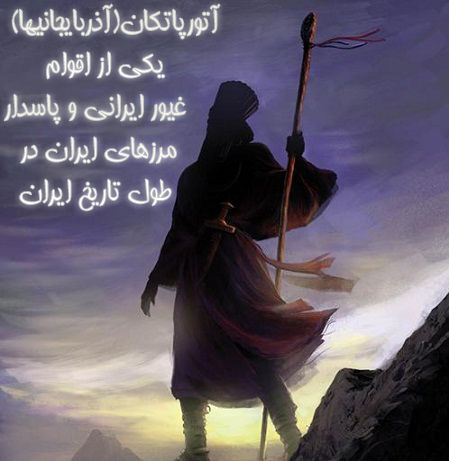
Some documents about the ancient language of Azerbaijan called Azari language
1.Professor Yarshater(From America)
"Azeri" is the name of an Iranian language that was spoken in Azerbaijan before the spread of the current Turkish language.. Speaking the "Azeri" language in Azerbaijan during the first Islamic centuries, as well as its "Iranian" language, have been stated and confirmed in numerous sources of the same period.
Source:
Yarshater, E., 1989 “Azerbaijan VII. The Iranian Language of Azerbaijan”: Encyclopaedia Iranica, vol. 3, London& NewYork- p. 238
—
2.Professor Henning(Famous orientalist)
Now everyone is an ally, and in fact there is no serious doubt that before the arrival of the Turks, the people of Azerbaijan and Zanjan, like the people of other parts of Iran, spoke one of the Iranian languages..
Source: Henning, and. B., "The ancient language of Azerbaijan": Hunted Shadows, Bahman Sarkarati, Qatreh Publishing, 1999- Pages 315 and 316
…
3.Ibn Muqaffa'(1st century)
The oldest source that mentions "Azeri" as one of the "Iranian" languages is "Ibn Muqaffa". (Killed in: 142ق) Is what he said in Ibn Nadim's book "List" (ص 22) Quoted. According to Ibn Muqaffa, the language of Azerbaijan, "Pahlavi" (Pahlavi) It is attributed to the stairs (Is it)That is, a land that includes Ray, Isfahan, Hamadan, Mahnahavand and Azerbaijan. "Hamze Esfahani" said the same thing. (movable in: Yaqout Hamwi, Volume 3, pg. 925) and Kharazmi (ص 112) have also quoted.
References:
– Ibn Nadim, Muhammad Ibn Ishaq: "List", translated by Reza Tajaddad, Ibn Sina Publications, 1346 - page 22
– Yaqut Hamwi, Abu Abdullah: "Dictionary of Countries", Beirut, Dar Sader, 1374 ق.- leather3- صفحه ی 925
– Kharazmi, Muhammad ibn Ahmad: "Mufatih al-Uloom", translated by Hossein Khadiojam, scientific and cultural publications, 1362-page 112
—
4.Masoudi(century4)
"Masoodi" historian of the early 4th century A.H. In his book “Al-Tanbiyyah and Al-Ashraf” (ص 8-77) After mentioning the name of Balad Iran (like the: Azerbaijan, Ray, Tabaristan, Gorgan, Herat, Merv, Sistan, Kerman, Fars, Ahvaz and...) says that: "All of this land was a single country and had a single king and language, except that they had differences in some words... such as Pahlavi, Dari, Azari and other Persian languages".
References:
– Masoudi, Ali bin Hussein: Al-Tanbih wa’l-Ishraf, corrected by Abdullah Ismail al-Sawy, Cairo. 1357 ق.- Pages 77 and 78
(Al Mas'udi, Kitab al-Tanbih wa-l-Ishraf, De Goeje, M.J. (ed.), Leiden, Brill, 1894, pp.77,78-
—
5.rocky(century4)
"Abu Ishaq Ebrahim Istakhari" a geographer of the 4th century AD. In his writing (ص 2-191), clearly the language of the people of Azerbaijan is "Persian" (Persian) Reads.
Source: Istakhari, Abu Ishaq Ibrahim: "Tracks and Kingdoms", Leiden, 1927, pp. 191-192
—
6.ابن هوقل(century4)
"Ibn Huqal" (Late 4th century A.H.) He also repeated the same words and clearly writes that: "The language of the people of Azerbaijan and most of Armenia is Persian"
Source: Ibn Hoqal, Abul Qasim: "Map of the Earth or Ibn Hawqal's travelogue", translated and explained by Dr. Jafar Shaar, Amir Kabir Publications, 1366- صفحه ی 97
—
7.holy(century4)
Abu Abdullah Moghaddasi, a writer of the late fourth century AH, divides the land of Iran into eight climates.: "The language of the people of these eight climates is Iranian (ajami) Is; Except that some are complicated and some are complicated (closed) and all of them are called Farsi" (ص 259). He adds that "Azerbaijan Persian is similar to Khorasan Persian in letters." (ص 378).
Source: Maqdisi, Muhammad bin Ahmad: "The Best Partitions", Leiden, 1906
—
8.Ruby(7th century Arab geographer)
At the beginning of the 7th century A.H. “Yaqout Hamoui” minweed: "The people of Azerbaijan have a language that “Azeri” (Azeri) They call it and it is not understandable for others.
Source: Yaqut Hamwi, Abu Abdullah: "Dictionary of Countries", Beirut, Dar Sader, 1374 Q.-Volume 1, page Y 128
—
9.Mustafi(century 9)
"Hamadullah Mostofi" dated the beginning of the 8th century A.H. He writes about the language of "Maragheh" people: "Their language is Pahlavi" (ص 100); And he says "Zanjan" about the language of the people: "Their tongue is on the right side (= complete) Is" (ص 67); And about the language of the "Ghstasafi" people. (Province between Ardabil and Baku) He states that: "Their Pahlavi language is closed to Jilani" (ص 107).
Source: Mostofi, Hamdallah: "Nuzha al-Qulob", by the efforts of Mohammad Dabirsiaghi, Tahuri Publications. 1336
————————————————————————————————————-
Familiarity with Harzani language:
Among the surviving dialects of the Azeri language, we will examine the "Harzani" dialect. "Harzen" or "Harzand" is a village located in the north of Marand city, where its people speak a dialect of the Azeri language..
Some examples of junk dialect vocabulary:
Otash fire ov water
Vorbad Arziarzo
Razbag Huya game
Vohor Parbe high snow
Pairi down(to Avesta: Parali = Prozpayez
Chohor forehead Zora son
Zam land ( To Avestan: Mine ( Toye = new
Yet Joro pair apart
Kosh, the eye of the Chol well
Khuyokhoda Karkhane
Vun blood Hov sister
Daya=girl's pain=Knya(To Avestan: Depth)
Mert =man Rost=right
Boror = Brother Yan = Female
Knowing=Zunusta(To Avestan:I will)
——————————————-
Numbers:
I = one
Of
Here
Give
Pinj
hurry up
Like
Hasht
Nov
Doh
Sa=hundred
Hazo = thousand
Other points of Azerbaijan that have kept Azari dialect:
Another group of surviving examples of the Azeri language is the oral or dialectal works of this language. Despite the increasing weakening of the Iranian language in Azerbaijan since the Mongol conquest and the influence and domination of the Turkic-speaking tribes over Azerbaijan in the Turkmen era. – Safavi, the dialects of this language did not disappear completely, but it is still spoken in different parts of Azerbaijan and its surrounding areas.. These dialects are from north to south:
1- Keringan from the village of Dizmar Khavari, Warzghan district of Ahar city; 2- Kalasor and Khoinerud from the villages of Kalibar section of Ahar city; 3- Glin Qiyeh from Harzand village in Zenouz district of Marand city; 4- Anbaran from Namin district of Ardabil city; 5- Most of the villages of Shahroud Khalkhal sector; 6- A number of villages in Upper Tarem; 7- the villages around Ramand and southwest of Qazvin; 8- Talash from Allahbakhsh Mohalla and Shandarmin in the south, to the former Soviet Talash in the north, which are basically closed to the Tati languages of Azerbaijan. (Big Islamic Encyclopedia, Vol. 1, pp. 261-2; Yarshater, 1354, p. 64; Yarshater, 1989, p. 241).
Conclusion:
The very clear and accurate statement and emphasis of various historical and geographical texts of the Islamic era that the language of the people of Azerbaijan is "Iranian" and the existence of such examples and numerous works of this language, both in written and oral form, clearly reveals that the native language and The origin of the land of Azerbaijan until the popularization of the current Turkish language during the Turkmen era – Safavi is one of the "Iranian" languages known by names such as "Azeri" and "Pahlavi".. On the other hand, there are no documents or sources that show that the language of the people of Azerbaijan was Turkish in the ages before the Turkmen era. – Safavi points out. Among the writers and composers of Azerbaijan before this period, no works were created in Turkish language, and no signs, samples or traces of this language were found on stone, mud, wood, paper, or metal, until that era and from this area..
Taken from Azargshansep's website


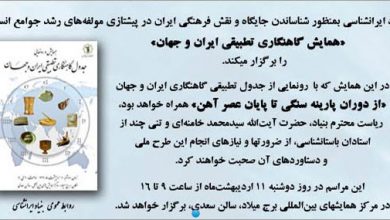
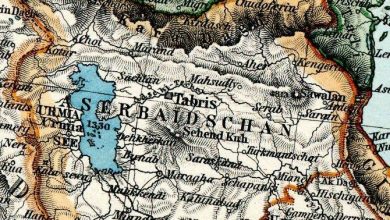
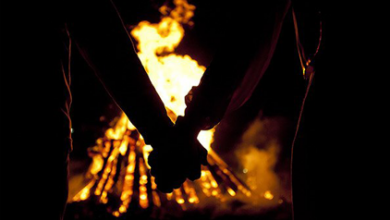
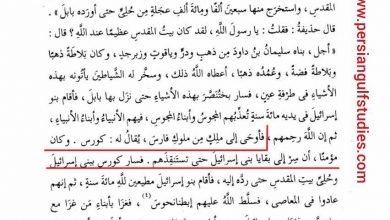
Hello to you
Thank you for this valuable activity
The definition of rural versus urban is related to recent times
But in the old days” the countryside “in return “Eilat “It has been mentioned ” tat” It is the same word that has been changed, which was a general and general name and title to call native and civilian people (Ahlabadi)